Posts by worldrelief
Seeing the Gift in Women
This time last year, right before COVID-19 exploded across the globe, World Relief’s International Programs leadership team came together for a weeklong global gathering in Musanze, Rwanda. As sisters and brothers from 11 different countries came together — Haiti, Cambodia and Kenya to name a few— we broke bread, prayed and celebrated all that God has done through World Relief in our 75 years of service.
While the entire week was filled with rich fellowship and deep strategic conversation, there was one particular day that impacted the three of us greatly. On that day, we focused our learning and discussions around the theme of gender equality. World Relief leadership presented our top strategic goals, one being greater gender equality both within our offices and across our programs.
To our great encouragement, everyone in attendance pledged to reaching this goal by 2022 through the following commitments:
- Commitment of Leadership: Leadership in each country office understands and prioritizes gender equality not only through their own actions, but addresses gaps recognized organizationally and programmatically.
- Gender Balanced Leadership: Increased gender balance in leadership roles at all levels of World Relief staffing. This is manifested by an increased proportion of women in all staff roles with special focus on most senior roles. Women are intentionally developed and included in succession planning and policies reflect concern for equality in career development opportunities and in equal compensation and benefits practices.
- A Gender-Sensitive Organizational Culture: World Relief is recognized internally and externally for its gender-sensitive organizational culture.
- A Gender Programming Focus: A gender lens is incorporated throughout the entire programming cycle within World Relief programming. This is manifested by staff being knowledgeable in the basic elements of gender analysis and possessing relevant technical skills to integrate gender in programming.
- An Accountability Framework: An accountability framework is in place organizationally to track progress on gains made in all of the above areas and to inform future action regarding gaps.
As the day folded into evening, the women of Word Relief led us in worship. There were songs, poetry and a devotional from our, then, new Burundi Country Director, Cesalie Nicimpaye, a long-awaited woman among many men. Women danced and sang in every language. This small moment felt to us like a commissioning as the men prayed over us at the end of the evening saying, “Help us see the gift you have given us in the women of World Relief.”
Since then, despite the hurdles that 2020 presented, we have each spent much of our time advocating for gender equality and working tirelessly to see a biblical vision of equal leadership among men and women become the norm across World Relief and beyond.
Today, as we prepare to celebrate International Women’s Day, we celebrate just a few of the outcomes and small beginnings that this commitment has spurred on:
- Every World Relief international office now has a dedicated gender focal point
- Effective June 2020, World Relief rolled out a long-awaited paid maternity and parental leave policy.
- Every World Relief international office has concluded a gender scorecard based upon the work of the Wheaton Network Initiative on Gender, Development and Christianity .
- All World Relief offices are in the process of creating a gender plan, which includes improvements in gender sensitive programming and data collection, recruitment processes and leadership pipelines that target women and better facilities for our female staff.
- All international offices are currently participating in a six-week intensive Development Associates International course, Women and Men Leading Together.
As 2021 brings with it new opportunities for growth in this work, we will continue to challenge for change, creating a better world for women and girls for generations to come. Will you join us?
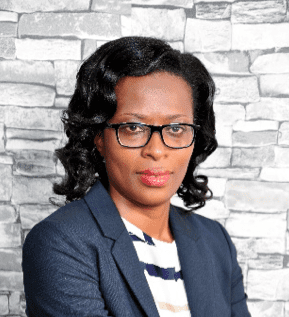
Clemence Nkulikiyinka has served with World Relief since 2008. Currently she serves as a Technical Advisor for Integral Mission, and one of global gender focal point. She has served in different roles, especially in Rwanda.
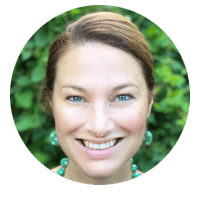
As the Director of the Program Resource Team, Joanna Kretzer Chun leads a team of global technical advisors that support World Relief international programs spanning Health and Nutrition, Savings, Agriculture, Child Development and Protection, and Couples’ Strengthening. With over fifteen years of international development experience, Joanna’s programming background spans the areas of gender mainstreaming, women’s empowerment, child protection, child development, faith leader engagement, and social norm change. Joanna holds Master degrees in Intercultural Studies and Family Studies from Fuller Seminary and a BA in Foreign Affairs from the University of Virginia. She resides with her family in Washington, DC.
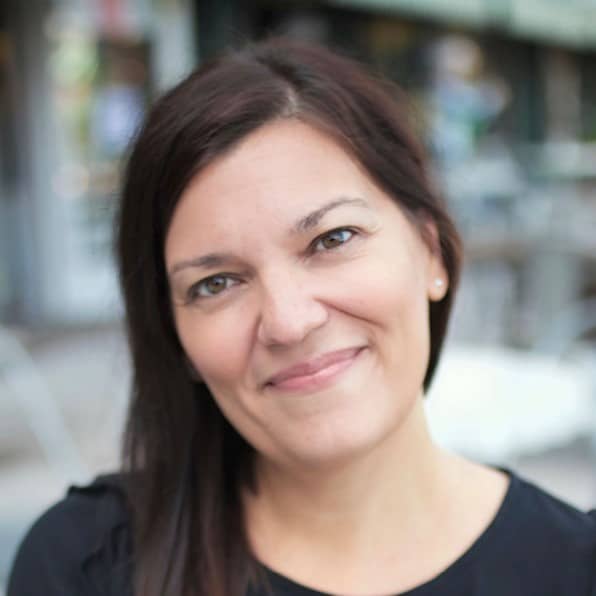
Eeva Sallinen Simard is Chief of Party for World Relief’s USAID funded SCOPE (Strengthening Community Outcomes through Positive Engagement) Project in RMNCH, HIV and COVID-19 response serving in Malawi, Kenya, Haiti, South Sudan, Rwanda, and DRC. She holds a master’s degree in International Politics from the University of Helsinki, and an MBA from Johns Hopkins University Carey Business School. She lives in Baltimore, MD with her husband, son, and daughter.
Clemence, Eeva and Joanna are gender focal points for World Relief’s division of international programs.
How it Started, How it’s Growing: World Relief Sacramento’s Welcome Club
In 2018, World Relief Sacramento volunteers Becca and Luke Voight began connecting with refugee youth at a local park. What started as an informal gathering has now grown into a robust program called The Welcome Club.
The Welcome Club partners with four area elementary schools to serve upwards of 100 students. It offers space for immigrant kids to ‘just be kids’. For many of these youth, schoolwork is difficult, and their guardians cannot give the same homework support that their American classmates receive. They are often translators for their parents and caretakers for younger siblings. Even if it’s just for an hour a week, The Welcome Club is where they can have fun with friends and coaches.
Like most of our U.S. programs, The Welcome Club had to make some big adjustments in 2020, moving all of its in-person programming online. I recently spent the day with WR Sacramento’s Children and Youth Manager, Makayla Synak, and got a first-hand look at the magic that happens at The Welcome Club, even in its virtual form. Follow along to learn more and find out how you can create communities of welcome for immigrants in the United States.
9:00 a.m.
Coach Makayla checks her car to make sure she has everything. Her trunk is full of children’s books, binders with waivers and forms, disposable face masks, hand sanitizer and craft supplies. Coffee cup in hand, World Relief blue t-shirt on, she leaves for the World Relief Sacramento office, which has been closed to clients since March of 2020.
9:30 a.m.
Makayla meets Coach Becca in the classroom at the back of the office. Becca, also masked and sporting her World Relief t-shirt, is adding printouts of song lyrics to 60 lunch bags on the floor. Every other Friday, Makayla, Becca and a small group of staff and volunteers take 60+ goodie bags to 12 apartment complexes for children and youth to unpack at their virtual Welcome Club that week.
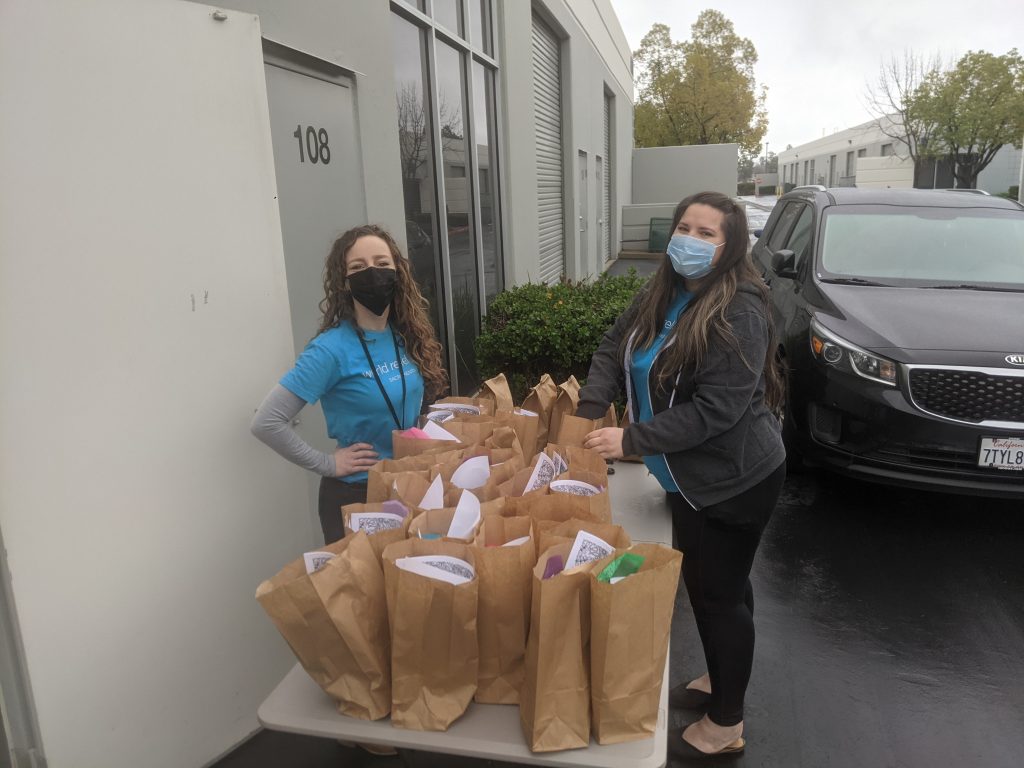
The bags are packed with goldfish crackers, contact paper and a booklet with the week’s Welcome Club theme: “Asking for Help and Giving Help.” Once filled, the bags are stapled shut with a note that says: DON’T OPEN UNTIL WELCOME CLUB. Becca and Makayla joke that most kids open their bags before club, but it’s worth a shot!
11:00 a.m.
Makayla takes a break from prepping goodie bags and logs into a Zoom meeting with a school vice-principal. This past summer, World Relief came together with local schools to talk about solutions for immigrant students who were falling behind due to COVID-19 and not logging onto Zoom for virtual learning.
Schools made a list of students who were struggling the most. Many of these students arrived in the U.S. just before the shutdown, and have never set foot in an American classroom. Since September, Makayla has logged 100 visits to over 50 of these families, checking in, walking through their assignments and giving them a laptop if they didn’t already have one.
12:00 p.m.
Makayla logs off Zoom and heads back to her car. She drives to the Las Palmas apartment complex, where many Afghan refugees live, to personally deliver 20 goodie bags. She barely sets foot in the courtyard when dozens of children and families approach and greet her excitedly. Ehsan, a seventh-grader who likes to help make deliveries, is among them.
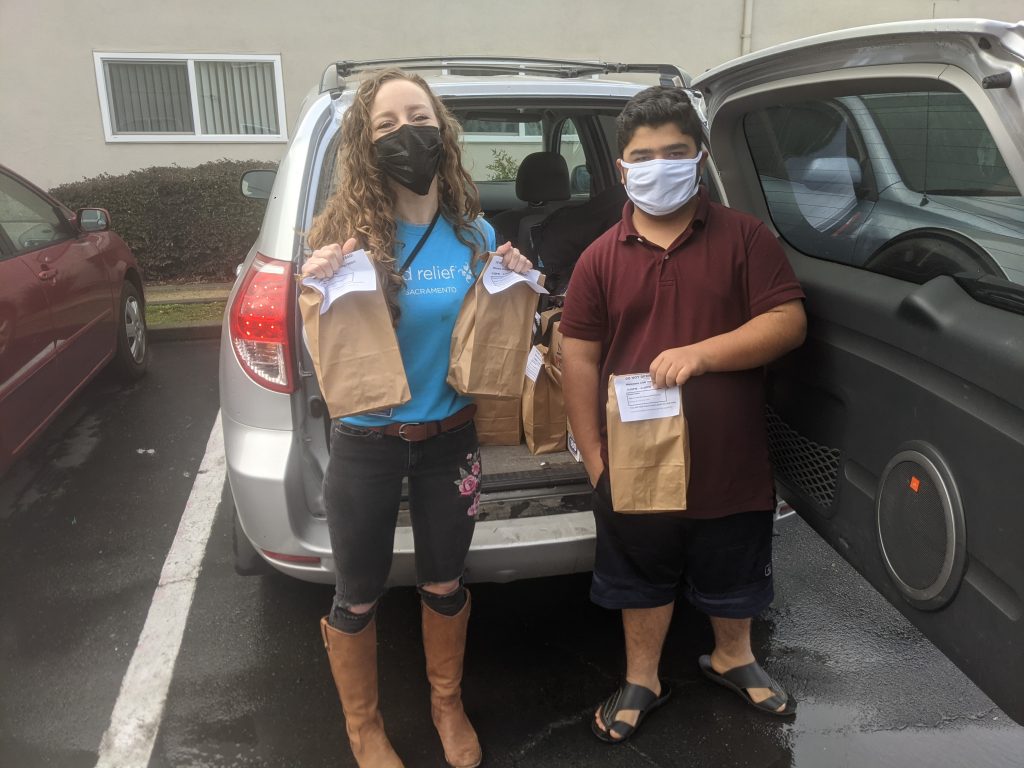
“I try to wait until he’s out of class,” Makayla says.
A group of children follow them from apartment to apartment. Mothers invite her in for tea. Her phone rings, and Makayla answers to help a student who is having an issue with her laptop. She stops to admire a girl’s braid, asks a boy about his school assignments, and greets everyone in Dari (the national Afghan language), which she’s trying to learn in her spare time.
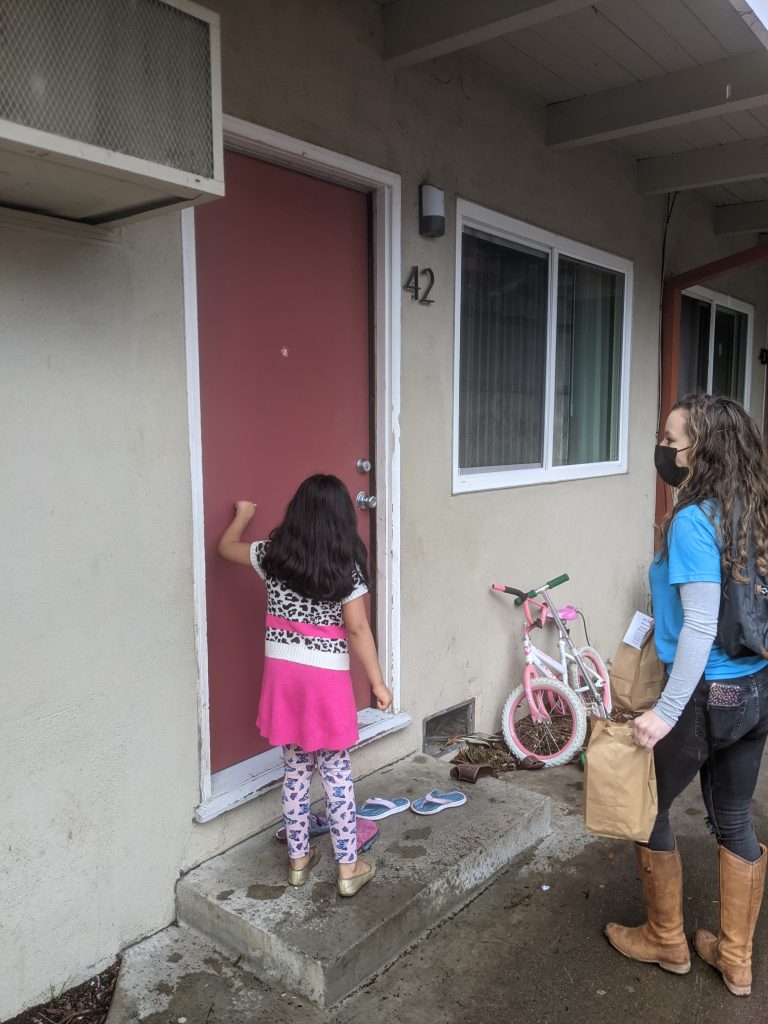
3:00 p.m.
Back at the office, Makayla and Becca log on to Welcome Club to meet with other staff and volunteers. Becca goes over the curriculum, assigning roles to each Coach. At 3:30, Makalya lets the students in from the waiting room, and soon two screens filled with 40 eager faces.
“Hi Coach Makayla! Hi Coach Becca!” The chat fills with messages of welcome and excitement.
“We are so happy you are here!” the coaches respond.
The students are always at the center of what Makayla and her team create — like the weekly Bad Banana videos that staff and students make together. Bad Banana is a character the team created to help illustrate the weekly themes.
Makayla dresses in a head-to-toe banana costume, draws on a mustache and puts on sunglasses. She is the “Bad Banana” who needs help from his Welcome Club friends. The name “Bad Banana” came from a nickname the students gave Makayla. Her name sounds like the word “kay-la” (phonetically spelled), which means banana peel in Dari, so students started calling her “Banana.”
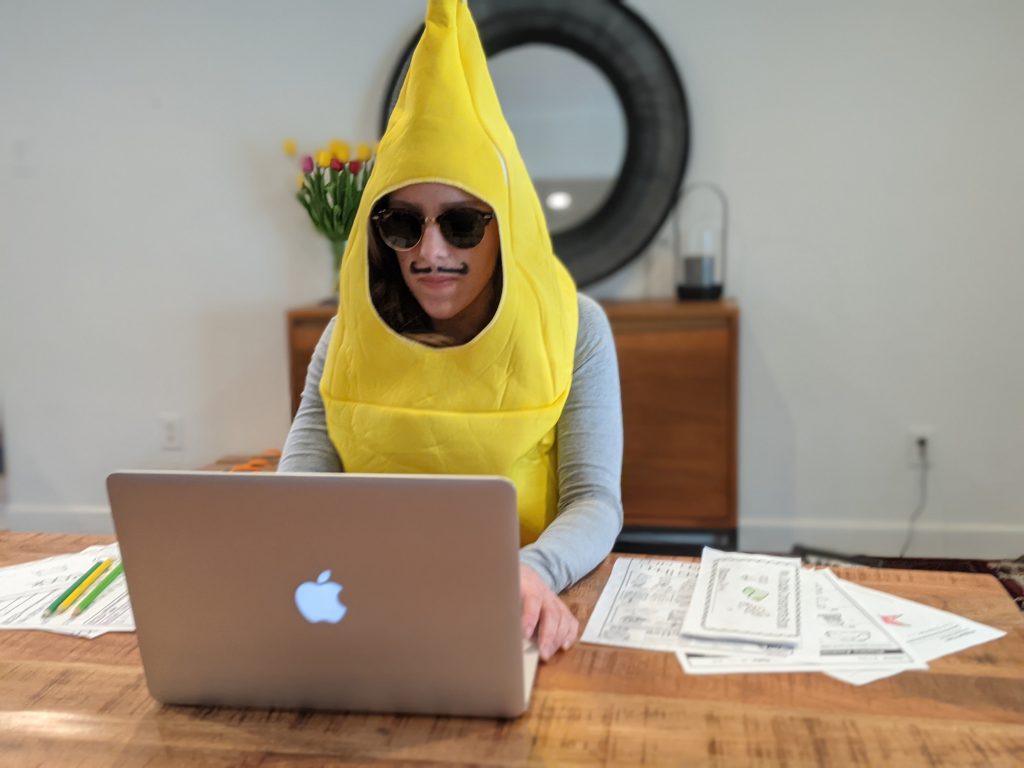
In this week’s video, Banana is struggling with distance learning. It’s too loud in his house and he can’t concentrate to do his schoolwork, so he calls his friend Horia from Welcome Club to ask her what to do. Horia tells Banana she was having a hard time, but then she asked Coach Makayla for help, and Makayla gave her headphones. Horia offers to ask on behalf of Banana, showing him what it means to be a helper.
4:00 p.m.
After the Coaches introduce themselves, students go into their breakout rooms where they play a game, talk about examples of when they gave and received help and complete the week’s craft together. During this time, Makayla moves in and out of breakout rooms.
4:30 p.m.
The students and coaches return to the main Zoom room. Makayla reminds them about tutoring on Tuesdays and Thursdays, and Becca shares the link to the latest Bad Banana video.
“Now, you have something fun to watch between now and the next Welcome Club,” she says.
The chat erupts with excited messages in response. Students sign off, though a few try to remain on for the coach’s debrief. Ehsan changes his name to “I’m a Coach!”
5:30 p.m.
After the staff debriefs, Makayla gathers up the remaining goodie bag items on the classroom floor. She makes a note of all the home visits she needs to schedule for the following week. She’s already thinking of ideas for next week’s club where they will introduce the new theme: perseverance.
Even after a full day, she is still energetic. The kids and their families make everything worth it. “Everyone who has ever succeeded at something had someone who believed in them,” she says. “I want to be one of those people who believe in them.”
There’s room for you to join staff and volunteers like Makayla as they make room for immigrants and refugees in the U.S. Give today to help programs like this flourish and enable our U.S. offices to start new ones!
To find out about local opportunities like volunteering, donating supplies, or becoming a WR Sacramento donor, find your nearest local U.S. office pages below!
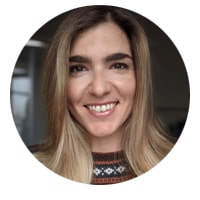
Vanassa Hamra serves as the Communications Manager for World Relief Sacramento. Her professional background is in creative writing and marketing, and she has worked in both the for profit and nonprofit sectors. She is passionate about storytelling and lives by the mantra that when you hear someone’s story, they move from being a stranger to becoming your neighbor.
Get to Know Our Staff: Kenya
In 2021, we’re giving you the inside scoop on the work that World Relief is doing in communities around the world through a new series called, Get to Know Our Staff. Each month, you’ll hear from a different staff member from across the World Relief network. Through videos, stories and interviews you’ll learn more about who they are, the communities where they work, what they do and why they love what they do.
On deck this month is Noah Sankale Pesi, our Church Empowerment Zone Coordinator in Kajiado, Kenya. Noah has been working at World Relief Kenya since 2018 and is passionate about seeing churches mobilized to serve the most vulnerable. Hear more from Noah in the video below!
Do you want to create lasting change alongside passionate, mission-driven coworkers like Noah? World Relief is growing our team to meet the increased needs of our world, and we’re looking for people like you to join us.
Change: Reimagining the Future for Families
This new year, we’re making space to reimagine the future and build a better world together. In the final post in our Made for Change series, Joanna Kretzer Chun and Debbie Dortzbach recount the way World Relief staff reimagined their approach to HIV prevention.
This reimagining led to the creation of a new program known as Families for Life. Families for Life is a couple-strengthening curriculum that continues to be adapted and reimagined in countries around the world.
“Vulnerability is the birthplace of innovation, creativity and change.”
― Brene Brown
A Quandary
In 2011, World Relief staff were faced with a quandary. We were in the middle of partnering with a church in India to start a typical HIV awareness and prevention workshop. Although there had been a decrease in HIV cases across India, the rates in 2011 were still quite high. In spite of governmental efforts as well as those of World Relief and other organizations like it, we weren’t seeing the results we had hoped to see.
I (Debbie) remember being kept up at night feeling disturbed that we weren’t making progress. I was at a loss for how to make the workshop more engaging and effective. But all that changed one day when I was riding on the train.
I remembered a report that told the story about how truck drivers in India were motivated to change their behaviors, not because they were afraid of contracting HIV but because they wanted to return to their families.
That little word “family” stuck out to me, and I wondered, “If this is what is motivating truck drivers to change their behaviors, why aren’t we using that as a motivator in our churches to prevent HIV and strengthen families?”
Surely the strengthening of families was something the church was called to do.
I shared these thoughts with some other team members, and that day on the train we began dreaming about what this new program could be. Change can feel vulnerable and unknown. But we knew that in order to foster greater programming effectiveness, we’d need to embrace a change, and thus the Families for Life (FFL) model was born within World Relief.
A New Way Forward
Implementation in India quickly showed that this new idea for engaging couples to spark behavior change was a huge success and filled a gap that no one else had been addressing. We soon realized that FFL could not only be effective in preventing HIV but also in helping couples address other critical issues like marital conflict and even domestic violence.
Groups began multiplying organically within churches and the wider community in southern India to meet the demand, and over time FFL blossomed, expanding out to an additional six countries, reaching thousands of couples across the globe.
At its core FFL seeks to strengthen the couple relationship as a foundation for a healthy family and calls for participants to be open to change and reimagine their futures together.
Using a combination of story, scripture, interactive discussion and personal reflection, these FFL groups go through a journey of growth together. Couples learn important skills like valuing one another, communication and problem-solving as a foundation to adapt to life circumstances and different seasons of life.
As couples work through our scripture-based curriculum, harmful beliefs about marriage and family begin to shift. Gender-based violence, alcoholism, poverty, abuse and unfaithfulness decline. Husbands begin to include their wives in everyday decisions; wives are empowered to contribute to their families’ economic growth; parents come to realize the value of educating both girls and boys; families begin intentionally planning for their futures.
Reimagining Again and Again
Families for Life is a unique model in that it can be reimagined again and again to meet the needs of a particular community, growing with that community as couples reimagine the future for their families.
Recently, in Burundi, we reimagined FFL to meet an unmet need for Family Planning. The curriculum was adapted to include information on family planning in order to prompt conversations around healthy timing and spacing of births.
This adaptation, while small, sparked new collaboration between couples, church leaders and community health workers, seeking to increase use of family planning services to reach 120,884 beneficiaries including 9,600 couples and their children. This adaptation has been successful in cultivating a trusted partnership between couples and community health workers and church leaders leading to a stronger demand for family planning services in the community.
In Haiti, we learned that one church network we worked with began hosting couples events that included games nights and all-night worship events. Once a month these churches host a family Sunday where pastors create sermons from the FFL manual. This is a community where we are no longer working, but the fruits of FFL continue to grow.
In Haiti, we learned that one church network we worked with began hosting couples events that included games nights and all-night worship events. Once a month these churches host a family Sunday where pastors create sermons from the FFL manual. This is a community where we are no longer working, but the fruits of FFL continue to grow.
Being open to change takes courage. This is true on a personal level for the couples we come alongside, but it’s also true for organizations seeking to implement effective programs. Knowing that change can lead to growth and even larger impact, World Relief continues to innovate and reimagine the future for couples and communities across the globe.
Give today, and join us as we reimagine the future alongside couples and communities across the globe.
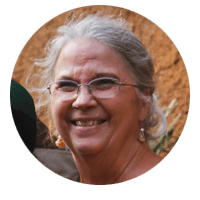
Debbie Dortzbach was privileged to raise her family in Kenya and spent most of her professional career in community health non-formal education training. During her many years working with World Relief, she helped to create and build the Families for Life model. She recently left full time work with World Relief and now enjoys reflecting, writing, serving her grandchildren, consulting, and advising.

As the Director of the Program Resource Team, Joanna Kretzer Chun leads a team of global technical advisors that support World Relief international programs spanning Health and Nutrition, Savings, Agriculture, Child Development and Protection, and Couples’ Strengthening. With over fifteen years of international development experience, Joanna’s programming background spans the areas of gender mainstreaming, women’s empowerment, child protection, child development, faith leader engagement, and social norm change. Joanna holds Master degrees in Intercultural Studies and Family Studies from Fuller Seminary and a BA in Foreign Affairs from the University of Virginia. She resides with her family in Washington, DC.
2020: A Year in Review
Unprecedented. Painful. Chaotic. Uncertain. These are just a few of the words that I’ve heard to describe 2020. It’s true that the hardships and losses of this past year come to mind so easily. Yet, as I look back, so much good has also happened along the way. Hope. Love. Endurance. Generosity. Community.
We saw communities coming together. We saw hope and love endure. We saw incredible generosity. We discovered that we are made for change and that together, we can be an irresistible force of good.
In spite of all the hard things that have happened this past year, at World Relief, we’ve been incredibly encouraged by our dedicated staff and volunteers and by the generosity of partners like you. Below is just a glimpse of all the good and positive change we saw take place, and we are grateful that you were a part of it:
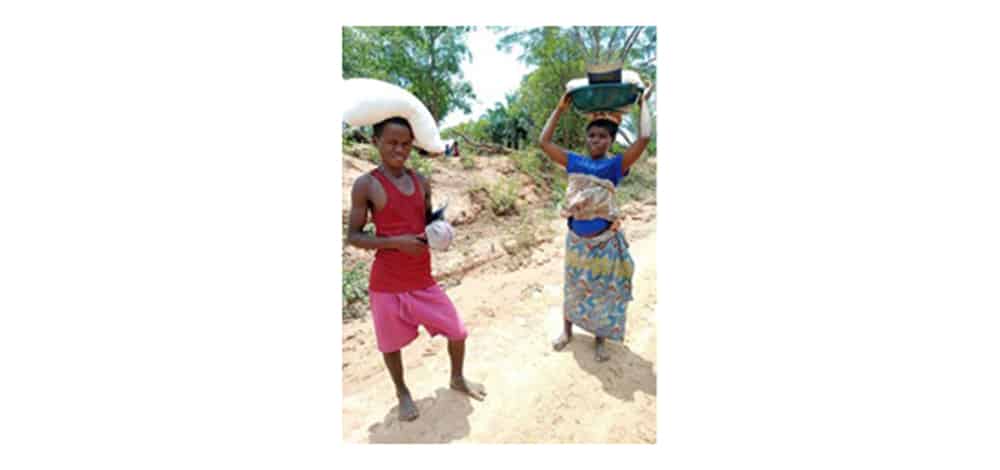
1. Better food security in Congo.
In the Democratic Republic of Congo, 27,438 of the most vulnerable households in the Tanganyika province have received seeds and agricultural tools. Each of these families has also been trained on modern, sustainable and affordable farming so they can begin to transition from a hunter-gather and forager lifestyle to having better year-round food security.

2. Creating opportunities for everyone in North Texas.
At World Relief North Texas, there now exists two new English language and citizen preparation classes — one specifically for Syrian refugees and another, for the first time, specifically for women. Many of the women who join are survivors of trafficking, gender-based violence or otherwise don’t feel comfortable in a classroom full of men.
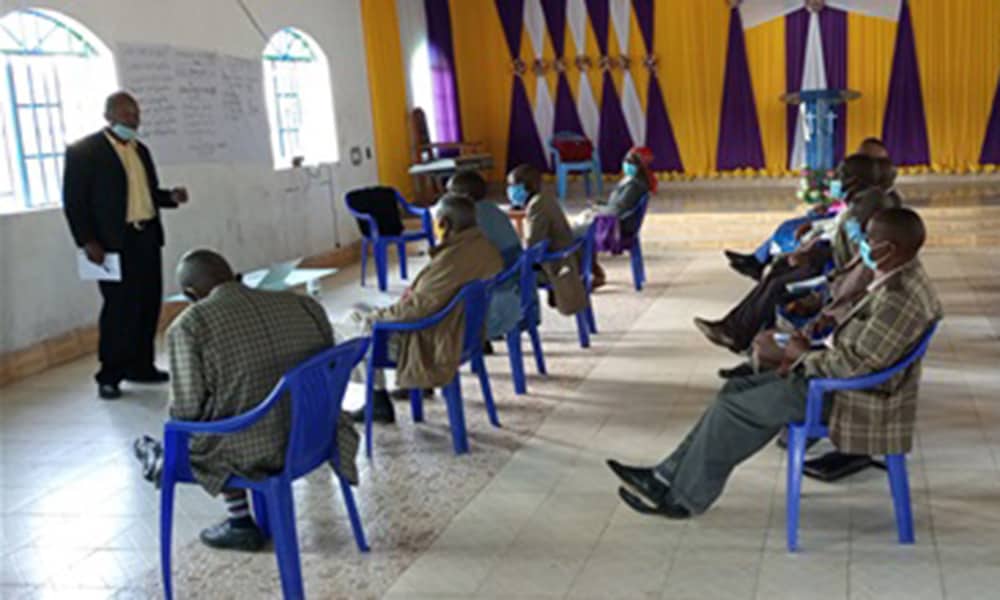
3. New Churches in Kenya.
Because we know the church is a powerful voice in communities, we’re celebrating 72 churches of different denominations in four regions in Kenya that will be instrumental in building a better future for their communities. These churches, like those pictured here at a meeting in Naivasha, will learn about the cycle of poverty, identify community needs, complete a project and begin transforming their futures.
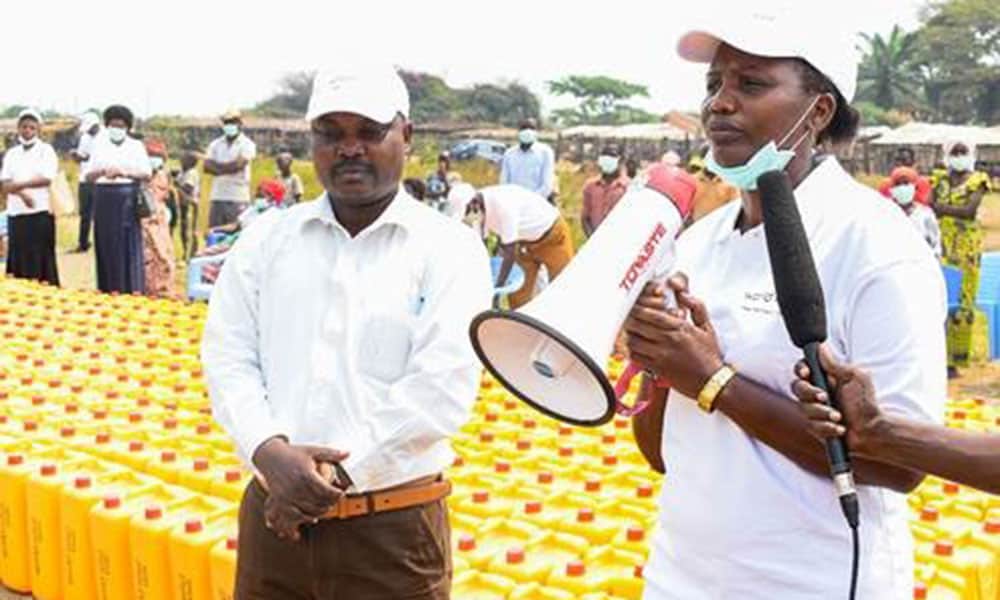
4. Better Hygiene in Burundi.
Families forced to flee their homes in Burundi can now enjoy the simple act of washing their hands and all the health benefits that come along with it. 500 wash kits including soap and these yellow containers were distributed to families in an internally displaced person camp.
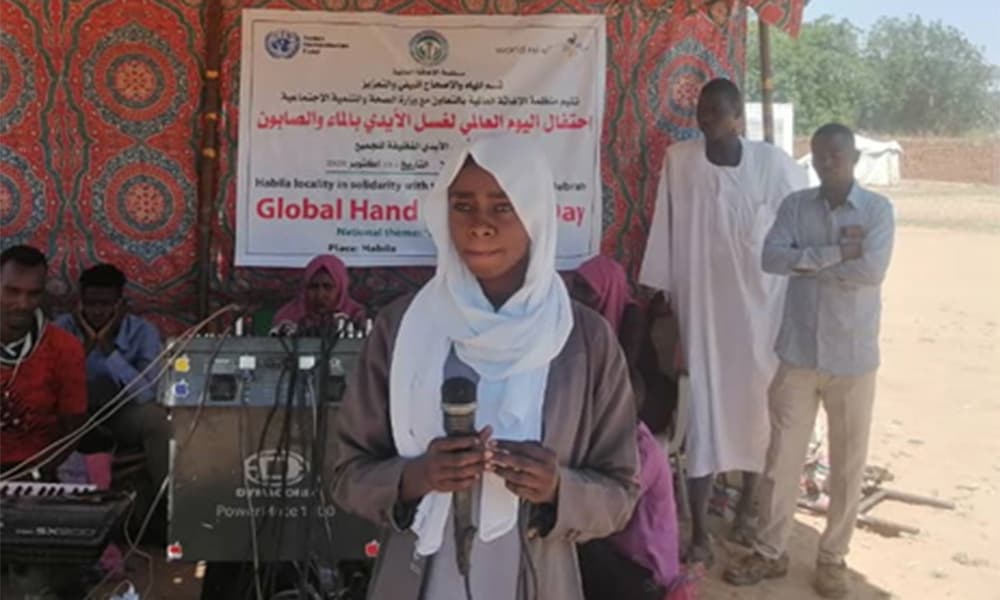
5. Staying healthy in Sudan.
In West and Central Darfur, COVID-19 prevention got a boost as 368 health workers were trained in infection, prevention and control in the early months of World Relief’s response. Proper hygiene was also celebrated at a Global Handwashing Day in West Darfur — a practice made even more important as we continue to work to slow the spread of COVID-19.
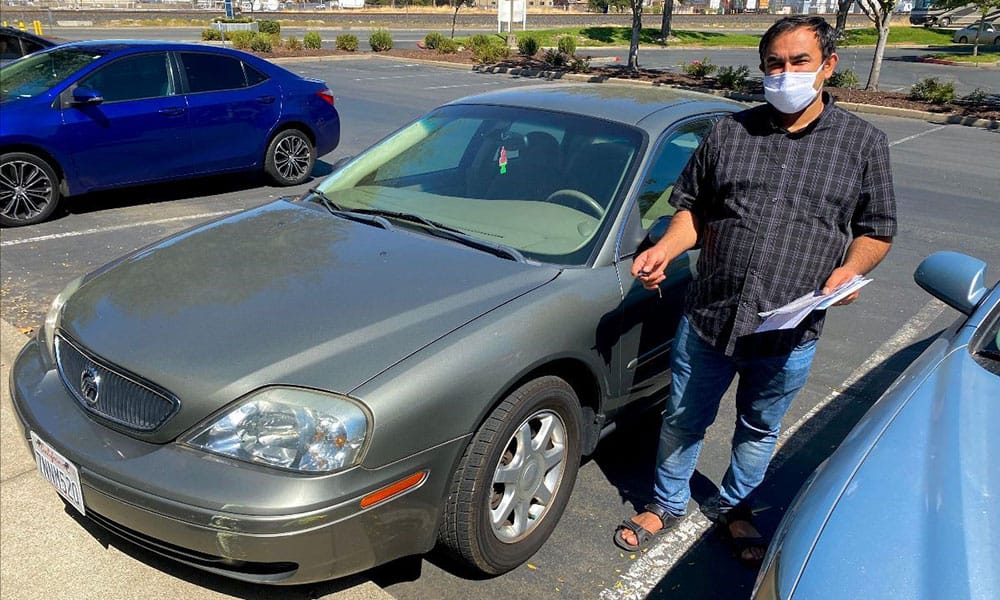
6. Self-sufficiency in Sacramento.
This summer, six families received cars through World Relief Sacramento’s car donation program. For people like Baktash, it means he is one step closer to being economically stable and can drive to work instead of walking 30 minutes each way. For people like Anas, it means keeping his job during the pandemic.
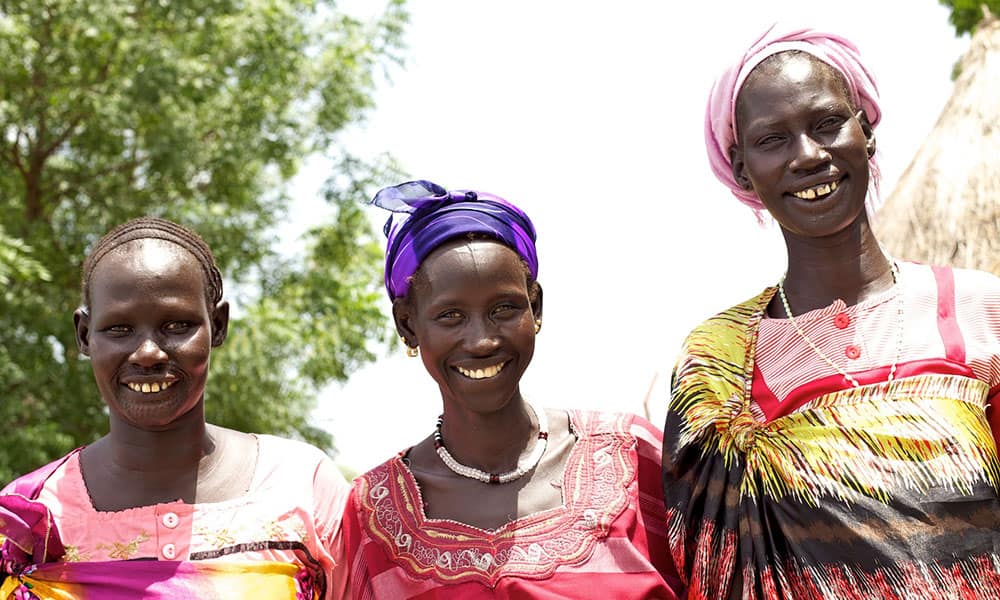
7. Improved health in South Sudan.
In the month of August alone, clinics supported by World Relief delivered 112 healthy babies, treated 276 children for malnutrition and treated 3,268 men, women and children for malaria.
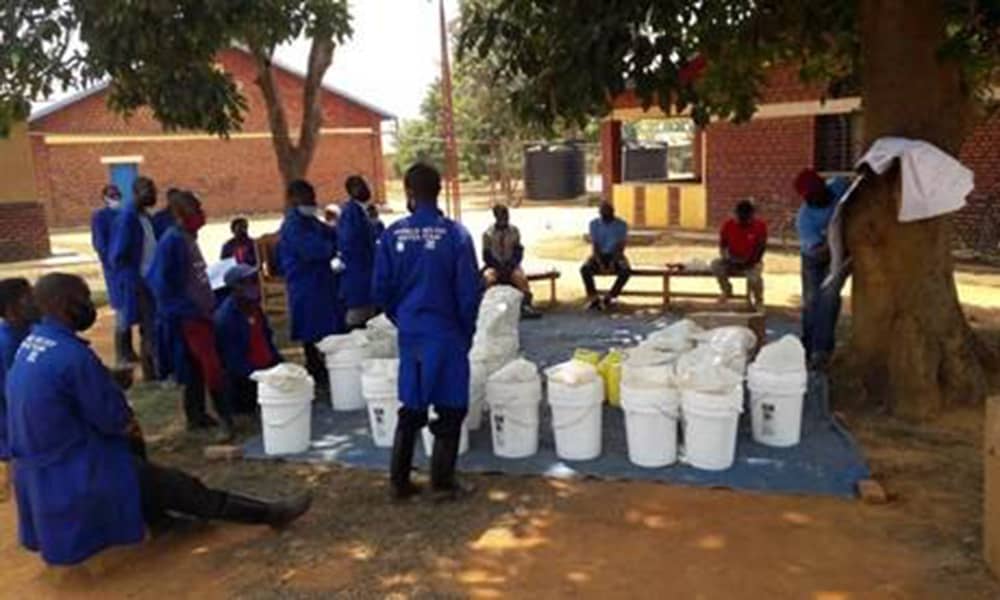
8. Clean water in Rwanda.
92 families have access to clean, healthy water at their homes in both Bugesera and Ngoma districts following the distribution of simple SAM III water filtration systems, shown here.
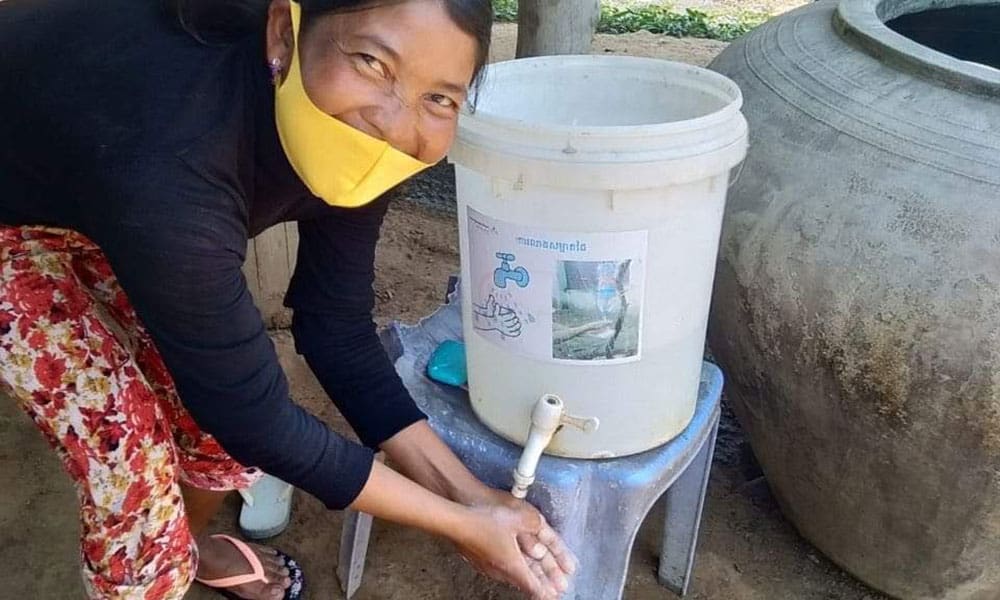
9. Church empowerment in Cambodia.
Through a new partnership with Khmer Evangelical Church, World Relief Cambodia is empowering new churches to serve the most vulnerable in their communities. We’re now able to reach households in two additional regions. In the early days of the COVID-19 pandemic, volunteers reached tens-of-thousands of people with prevention messages like hand washing, covering your cough and wearing masks.
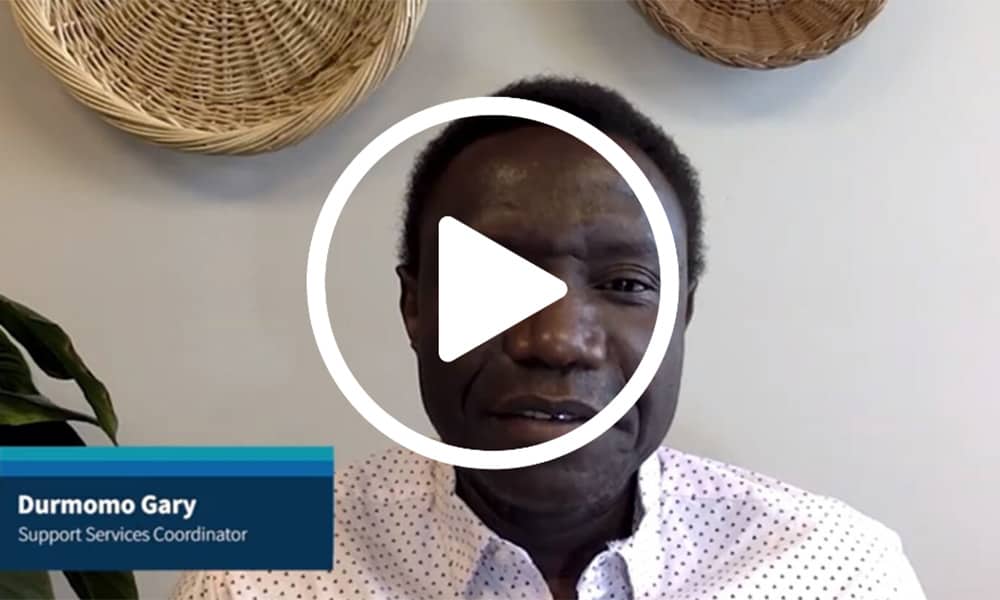
10. Renewed hope for refugees.
President-elect Biden has pledged to raise the refugee ceiling from 15,000 each year to a more historical average of 125,000. We are thankful for renewed hope for people who have lived through experiences like what Durmomo shares in this video, and we are calling on the President-elect to follow through.
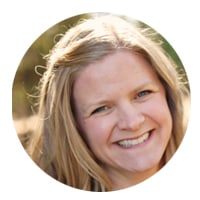
Karyn Bryant has worked with donors and philanthropists to put love into action for causes they feel passionate about. She joined World Relief’s strategic partnership team in January 2020. When not working, you might find her cooking, floating on a river or spending time with her husband and two young children where they reside just outside Sacramento, California.

Dana North serves as the Marketing Manager at World Relief. With a background in graphic design and advertising and experiences in community development and transformation, Dana seeks to use the power of words and action to help create a better world. Dana is especially passionate about seeking justice for women and girls around the world.
Unseen Hope
As we round the corner of 2020 toward the end of the year, we’re bringing you more made-for-change stories from across the World Relief community.
Today, Amberle Brown, World Relief’s MEL Advisor and Disability Inclusion Focal Point at World Relief, shares her story of living with a disability and how God is using her experience to bring disability inclusion training to World Relief’s global programs. Amberle’s story reminds us that change hopes because God is faithful.
A Lost Dream
The warm breeze carried the voices of the practicing church choir through the window of our office. I was sitting in a circle with a dozen of my colleagues in Burundi, discussing our plans to reach people with disabilities with the health, child development and economic development programming in our nearby Church Empowerment Zone. This was the life I had hoped for since I was a child, but I had no idea of the hopelessness I would have to endure to get here.
When I was seven, I told my parents (to their horror) that I wanted to be a martyr when I grew up. Eventually, I toned that down and declared that I wanted to be a missionary when I grew up. From that young age, all the decisions I made were centered on my goal of becoming a missionary: I became a nurse as an avenue to serve in closed countries, I spent summers abroad, I even refused to date boys who didn’t also want to be missionaries.
But a few weeks after I turned 21, I was admitted to a burn ICU for toxic epidermal necrolysis (TENS) – an extremely rare allergic reaction that affects 1 in 2.5 million people – and kills one in three who have it. There is no established treatment for TENS – doctors must sit by as the patient’s body attacks itself, causing skin and organs to lose their linings like a burn.
Over the next month, I lost 95% of my skin and the lining of organs including my lungs and eyes. As my flesh melted away, so did my hopes of being a missionary in a remote part of the world. By God’s grace, I hardly remember any of that month, as a machine forced air into my decaying lungs and artificial bandages served as the barrier between me and the world. When I left the hospital, my eyes were severely scarred, making the world a blur.
And though I could see people like shadows, I was left with a much deeper pain – a pain of not understanding why God would give me a dream and then take away what I felt was my ability to fulfill that dream as I envisioned it.
Pieces of Hope
As I learned how to live with a disability, I also discovered more about the global situation of people with disabilities: Around the world, people with disabilities are twice as likely to live in poverty; they are more likely to be hungry, have poor health, lack education and be victims of violence; and only 5% of the 1 billion people with disabilities in the world have ever heard the gospel.
And yet, because of physical, communication and attitudinal barriers, people with disabilities are far more likely to be left out of the very efforts intended to foster their thriving.
But in these seemingly hopeless discoveries, God began to restore broken pieces of my hope. For the first time I noticed a Jesus who stopped in his tracks for people with disabilities over and over in the gospels. I learned that my vision loss in fact made it easier for me to rely on God rather than my independence. And I found that my disability itself allowed me to notice and break down barriers that most of us overlook.
My experience with disability propelled me and my team to look more closely at World Relief’s efforts to tackle the world’s biggest problems, to assess and dismantle barriers that might have kept people with disabilities from benefiting from our programs, and to partner with pastors to address harmful beliefs and stigma about disability in the countries where we work.
Bringing Hope to Others
Over the past 18 months, Disability Inclusion (DI) has become integral to World Relief’s mission and strategy. Early emphasis in this work has been focused on understanding the contexts where we work, preparing DI tools and equipping staff to begin DI integration in programs.
In total, we’ve engaged more than 3,400 individuals around DI issues, helping change their perspectives and beliefs about people with disabilities, and guiding them on the journey to understand, identify, serve and treat people with disabilities as men and women made in the image of God.
This work has been piloted across several of our programs in Burundi and Malawi, where 693 local leaders have been reached with DI messaging. Our Parenting for Life couple facilitators have also been taught to better understand the unique needs and constraints that parents of children with disabilities face.
Likewise, 1,966 parents (754 in Burundi and 1,212 in Malawi) have been introduced to a new way of thinking around disabilities, helping them change the way they interact with and treat their children, especially those with disabilities. Many have shifted their mindset as a result of these programs; while they might have previously thought that having a disabled child is a curse from God, they now know to celebrate and support children with differing needs and abilities.
Finally, DI is beginning to inform projects on the ground, the decision-making process, and how we meet the needs of our beneficiaries. In Malawi, for example, a project team focused on improving sanitation conditions within schools worked with children with disabilities in the design of latrines to ensure these facilities would be disability-friendly. These are just a few of the exciting initiatives that are beginning to take shape across our international programming.
Today, I thank God for my disability. I thank God that in my vision loss he has given me a new vision for a world where people with disabilities are embraced by the Church, included in development efforts, and valued by their communities. The winds of hope have come over me afresh. I see redemption coming both in my own life, and in the lives of 1 billion other people with disabilities because real Hope is not based on what we see, but on what we don’t yet see.
“For we were saved in hope, but hope that is seen is not hope. For who hopes for that which he sees? But if we hope for that which we don’t see, we wait for it with patience.” Romans 8:24-25
When you give to World Relief, you support programs and initiatives like our Disability Inclusion work in Malawi and Burundi. Join us in bringing transformation to the world’s most vulnerable.
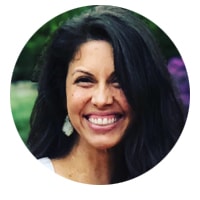
Amberle Brown is the monitoring, evaluation, and learning advisor for WR’s USAID-funded community-based RMNCH work and World Relief’s Disability Inclusion Point Person. Her personal experience with vision loss sparked her passion for disability inclusion, which has led her to work with World Relief to promote disability inclusion across all program sectors and to co-found The Banquet Network, an organization that equips churches to include people with disabilities. Amberle holds an MSN and MPH from Johns Hopkins University and a BSN from Texas Christian University.
When Persistence Pays Off
Our refugee women’s English class had been in session for two weeks when they came, a couple from Afghanistan inquiring if there was room for one more. The husband asked if his wife could join too. The class was full, but our instructor added her name to our waitlist and promised to call if anything changed.
Next week the same couple returned—was there room? The husband explained that his wife was alone at home and needed to be in this class to be with friends and learn English. He insisted that he could even stay home from work and take care of their child.
Two weeks later, the husband called to ask if there was space and could we please help his wife. We wished we had a different answer for him other than that the class was still full.
Next week, the wife came to class with a friend already enrolled in the class. She had heard through friends that just yesterday a woman had dropped out. Could she take her spot? She promised to study hard and do anything she could to catch up. Of course, the spot was hers. The shift was clear in just a few short weeks— a woman who felt isolated now had a space where she could practice English, connect with others and feel a newfound sense of belonging.
The women in our English classes overcome hardship, trauma, language barriers and so much more to establish their new lives and homes. This week we took our first field trip to the local pharmacy, what many of us would consider just another errand. Most of our students had never spent much time in a U.S. pharmacy because they found it too overwhelming and different from ones they had experienced in Afghanistan. Together we went and saw firsthand the types of medicines available, practiced asking the pharmacist questions about different options based on theirs or their children’s symptoms.
We took what we studied in the classroom and practiced in the real world, but in a way that felt safe and comfortable for the group. A passerby might barely have noticed us save that we were a larger than normal group in the small pharmacy, but for our students it was a hard-earned step towards greater self-sufficiency and confidence.
What started as one English class for a dozen refugee women in 2018 has blossomed into four different sites across Sacramento County. Someday we hope there are dozens more sites serving hundreds of refugee and immigrant women. These classes are made possible through dedicated volunteers and generous community partners like Sutter Health who are helping new Americans navigate a healthcare system that once felt foreign and inaccessible.
Join us in 2020 as we create lasting change in the lives of refugees and immigrants. Just $65 supports a week of English class for one of your new neighbors, or learn more about volunteering in programs like our Refugee Women’s English.
World Relief Testifies in the Senate on U.S. Refugee Policy and Hong Kong Residents
December 16, 2020
CONTACT:
Lauren Carl
lauren.carl@pinkston.co
(703) 388-6734
BALTIMORE – Yesterday, Jenny Yang, Senior Vice President of Advocacy and Policy at World Relief and co-chair of the Advocacy Committee of Refugee Council USA (RCUSA) testified before the Senate Judiciary Subcommittee on Border Security and Immigration, for a hearing “Supporting Hong Kong’s Pro-Democracy Movement through U.S. Refugee Policy.” Jenny spoke on behalf of World Relief and Refugee Council USA (RCUSA), a coalition of 29 US-based nongovernmental organizations representing a diverse group of nonprofits that advocate for and with those who are forcibly displaced. The hearing’s first panel of speakers included Senators Robert Menendez and Marco Rubio, who spoke about their Hong Kong Safe Harbor Act bill. The second panel featured Jenny Yang, who spoke on U.S. refugee policy with four witnesses: constitutional law professor Julian G. Ku, and Hong Kong activists Ms. Joey Siu, Mr. Samuel M. Chu and Mr. Nathan Law.
As Jenny noted in her testimony, this year marks the 40th anniversary of the Refugee Act of 1980 which passed unanimously in the Senate. Congress recognized at that time that U.S. leadership was needed to respond to growing numbers of those forcibly displaced and wanted to codify into law a process by which those who are fleeing persecution can gain the protection of the United States in partnership with local communities. As the effects of an oppressive new law are forcing people to live in fear in Hong Kong or flee elsewhere, the United States needs to show leadership again.
“In order for the United States to offer genuine protections to those from Hong Kong, Congress must work with the administration to rebuild the US refugee admissions program (USRAP) that has been systematically dismantled over the past few years. Our ability to welcome anyone fleeing persecution regardless of their race, ethnicity or religion, is a hallmark of our democracy and is a principled position against Communist regimes that stifle and oppress its people.,” said Jenny Yang, World Relief’s VP of Policy and Advocacy and Co-Chair of RCUSA’s Advocacy Committee. “The United States’ ability to offer protection through a strong and flexible U.S. refugee admissions program (USRAP) is a direct indicator of our commitment to human rights and will have an impact on our ability to promote democracy abroad. Whether the residents of Hong Kong will avail themselves of the protection of the United States may depend on how agile and efficient the process is.”
The inclusion of residents of Hong Kong in the FY21 Presidential Determination on Refugee Admissions is a step in the right direction. But the significantly reduced overseas processing capacity has meant that there is currently a lengthy and arduous vetting process for all refugees that has rendered the U.S. refugee admissions program from what should be a nimble, efficient, life-saving tool into a cumbersome, lengthy process through which those who need immediate protection are often not able to avail themselves of such through the program.
“The most important steps that Congress and the administration can take to prepare for and operationalize refugee resettlement from Hong Kong are to restore the U.S. refugee admissions program to historical norms and to rebuild and robustly support U.S. refugee admissions program overseas processing and domestic resettlement capacities,” Yang said. “Congress should work with the administration to increase capacity for U.S. Embassy and NGO referrals, schedule ongoing USCIS circuit rides to the region, and break through other logjams in processing.”
The current administration’s severe reduction in the refugee ceiling for FY2021, currently set at a historic low of 15,000, has left many refugees stuck in camps or urban settings, waiting for a safe harbor and reunification with their families. In her testimony, Yang stated, “The ability of the United States to operate a flexible and more robust USRAP will have a direct impact not just on those needing immediate protection from Hong Kong but also on so many around the world who have languished for decades in refugee camps and urban settings with no durable solution in sight.” In addition, Yang noted the recently finalized asylum rule that would significantly hamper if not altogether make impossible the ability for many Hong Kong asylum-seekers to gain asylum.
“The U.S. has the creative capacity and ability with the support of local communities to process and welcome Hong Kong refugees as well as the thousands of others who have nowhere else to go. What it will take is the political will, resources, and leadership from Congress to get the job done. Fewer than one-percent of refugees will ever be resettled to a third country, Congress needs to act now to reform and strengthen what some call the ‘crown jewel’ in U.S. humanitarianism,” said Yang.
As Congress explores the challenges and opportunities with helping the people of Hong Kong and others who may be forcibly displaced, World Relief and RCUSA will work in unison with Congress and the administration to meet these objectives and protect the world’s most vulnerable people.
Watch a video of the hearing here and read Jenny Yang’s full testimony here.
To download a PDF version of this press release, click here.
###
About World Relief
World Relief is a global Christian humanitarian organization that brings sustainable solutions to the world’s greatest problems – disasters, extreme poverty, violence, oppression, and mass displacement. For over 75 years, we’ve partnered with churches and community leaders in the U.S. and abroad to bring hope, healing and transformation to the most vulnerable.
About Refugee Council USA (RCUSA)
RCUSA is a diverse coalition advocating for just and humane laws and policies, and the promotion of dialogue and communication among government, civil society, and those who need protection and welcome. Individual RCUSA members do not all address all refugee-related issues, nor do all individual members approach common refugee-related issues identically.
Learn more at worldrelief.org and RCUSA.
World Relief Responds to Trump Administration’s Finalized Regulation to Limit Asylum
December 11, 2020
CONTACT:
Lauren Carl
lauren.carl@pinkston.co
(703) 388-6734
BALTIMORE – The Trump administration announced Thursday that it has finalized a regulation that would make it increasingly difficult for individuals to claim asylum in the United States, the most recent in a number of rules of similar effect. As a Christian organization committed to honoring the dignity of every human person, World Relief decries this new rule, which is poised to go into effect on January 11, and adamantly calls for its immediate reversal. For many vulnerable individuals, including many persecuted religious minorities, the United States is their only safe harbor. Instead of shutting out asylum-seekers, the U.S. government should offer protection to those fleeing danger and partner with organizations committed to upholding the value of every individual and their right to seek refuge.
“U.S. law rightly offers safety and protection to individuals who reach the U.S. who can demonstrate a credible fear of persecution in their country of origin. These new regulations dramatically restrict the number of individuals who will qualify for this life-saving refuge,” said Scott Arbeiter, World Relief president. “The U.S. has both a moral and a legal obligation to protect those fleeing persecution that we must not betray.”
As World Relief noted in formal comments submitted shortly after these proposed rules were first announced, this asylum regulation’s broad changes would impact those applying for asylum at the border as well as from within the U.S. The now-finalized rule dramatically redefines key legal terms – including “persecution,” “well-founded fear,” “torture,” “political opinion” and “particular social group” – in absurdly restrictive ways, which will mean that individuals who would previously have won their asylum cases will now be denied and, in most cases, be deported back to their persecutors.
“Being a safe country and a compassionate country are not mutually exclusive traits,” says Tim Breene, World Relief CEO. “While we ought to insist that our government enforce laws designed to prevent anyone who would seek to do harm from entering the U.S., we must be equally committed to respecting laws designed to offer refuge to those fleeing persecution. As Christians, we believe this new regulation is inconsistent with our conviction that all human life is made in God’s image and thus worthy of protection.”
In July, World Relief partnered with Open Doors USA, an organization focused on advocating for persecuted Christians globally, to release a report that examined the harm that these regulations, as initially proposed, would cause to persecuted Christians and other religious minorities. That report urged Christians to file formal public comments opposing these changes, which contributed to the more than 88,000 public comments filed. Nevertheless, the administration has finalized this rule with only minimal amendments. World Relief urges the Trump administration to reverse this rule immediately, consistent with its stated commitment to international religious freedom.
Presuming the Trump administration does not reconsider this decision, World Relief calls on President-elect Biden to reverse these restrictive regulations as expeditiously as possible and urges local churches to unite in advocacy and in prayer as they seek to welcome the asylum seekers and other immigrants into their communities.
To learn more about World Relief, visit worldrelief.org.
To download a PDF version of this press release, click here.
###
About World Relief
World Relief is a global Christian humanitarian organization that brings sustainable solutions to the world’s greatest problems – disasters, extreme poverty, violence, oppression, and mass displacement. For over 75 years, we’ve partnered with churches and community leaders in the U.S. and abroad to bring hope, healing and transformation to the most vulnerable.
Learn more at worldrelief.org.
World Relief Announces New Office in Ad-Damazin, Sudan
December 10, 2020
CONTACT:
Lauren Carl
lauren.carl@pinkston.co
(703) 388-6734
BALTIMORE – Today, World Relief announces a new office and guest house in Ad-Damazin, the capital of Blue Nile in Sudan. The new office will advance World Relief’s presence in the Blue Nile region to best serve the community. Since 2004, World Relief Sudan has been on the ground, working to alleviate poverty and stabilize conflict in the region.
World Relief currently has three professional staff members at the new office. The focus at present is on responding to post-flood, Covid-19 and other disaster needs but World Relief has been discussing with UN agencies and other donors on potential program expansion into food security and livelihoods, wash, sanitation and hygiene (WASH) and other extreme areas of need. We are providing food, water and other immediate needs support to almost 1,000 refugees from Tigray in neighboring Ethiopia and continue to assess our capacity to do more in responding to the influx of refugees into Sudan.
“We are grateful to open our new office in Blue Nile, where we have been working for a number of years now,” said Charles Franzén, director of humanitarian and disaster response at World Relief. “The new location gives our team greater access into the region to best serve the most vulnerable. Especially as tensions continue in the area and refugees arrive from the Tigray region.”
In 2019, World Relief Sudan was granted the largest amount of funding from the Sudan Humanitarian Fund (SHF) at $4.8 million. This funding enabled World Relief to provide urgent aid to the estimated 6.9 million people that, according to the U.S. Agency for International Development (USAID), faced food insecurity during the lean 2019 season. The funding has also given World Relief the flexibility to open the new office in Blue Nile, in addition to other private and institutional sources.
“Our work in Blue Nile expands to a new state the excellent humanitarian efforts of World Relief in Sudan,” explains Gemta Birhanu, Sudan Country Director at World Relief. “In the future we can look at opportunities to provide food security and livelihoods and WASH to a marginalized part of the country and hope to extend our work to the more diverse community elements in the state. As we have only recently started our work in Blue Nile, we are fortunate enough to be in a position to respond to the needs of Tigrayan refugees from Ethiopia who have crossed the border into the state.”
To learn more about World Relief, visit: https://worldrelief.org/
To download a PDF version of this press release, click here.
###
About World Relief
World Relief is a global Christian humanitarian organization that brings sustainable solutions to the world’s greatest problems – disasters, extreme poverty, violence, oppression, and mass displacement. For over 75 years, we’ve partnered with churches and community leaders in the U.S. and abroad to bring hope, healing and transformation to the most vulnerable.
Learn more at worldrelief.org.









